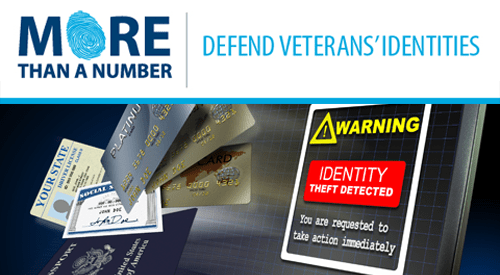Online scams can affect Veterans, their families, and anyone using social media platforms—and that’s an estimated 3.6 billion potential victims. Social media scams are becoming more common in this digital age, so it’s important that you know how to recognize them and protect yourself.
Scammers are persistent. They try to build a sense of trust by showing victims proof that others have done what they asked and received payment – but the reality is that it’s all fake. You can better protect yourself from becoming a victim by understanding what to look out for.
For example, VA’s Million Veteran Program (MVP) recently received reports from several individuals who were contacted by a scammer through their social media accounts. The scammer showed victims the MVP website and attempted to solicit money with the promise of sending them a larger amount in return. Scams like these are common, but if you recognize the signs you can easily determine when someone is trying to scam you.
Here are some other examples of social media scams:
- In one instance, a message told the individual to buy gift cards and send them to the scammer and receive $2,400 for doing it.
- In another, individuals were asked to send $100 via a money transfer app, and they would receive $1,200 in return.
Bottom line: Trust your gut. If it sounds too good to be true, it probably is! It’s important to be diligent with your information; never send money or private information, including passwords, to anyone that you don’t know.
As a reminder, MVP uses multiple security and privacy layers ensuring participating Veterans’ data is safe, secure, and helping improve future Veteran health care.
If a Veteran or their family member feels their information was compromised through a scam, contact VA’s ID Theft helpline at 1-855-578-5492 or visit VA’s Identity Theft page for more information.
The Federal Trade Commission (FTC) also provides great practical tips on avoiding being a victim of fraud by spotting potential scams. You can report scams online through FTC’s Complaint Assistant website and help the FTC and others investigate and hold those responsible accountable.
Jennifer Deen is a health science specialist with the Million Veteran Program at VA’s Office of Research and Development. Sarah Moffat is the enterprise cybersecurity awareness and training director VA’s Enterprise Cybersecurity Awareness & Communications office. Crystal Drakeford is a senior government information specialist at VA Privacy Service, Office of Information and Technology.
Topics in this story
More Stories
How much do you know about VA care, benefits and services? Don’t miss out on what you've earned—check out the "2025 VA Federal Benefits Guide for Veterans, Dependents, Survivors, and Caregivers" handbook to learn more.
VA has updated its process for awarding G.I. Bill benefits. This means that many Veterans who served multiple periods of military service (for example, Veterans who reenlisted) may be eligible for additional benefits for themselves or their beneficiaries.
For Veterans especially, the risk of identity theft is high, as criminals target reoccurring monthly benefits payments. Bad actors utilize stolen privacy information to exploit VA benefits, health care and pensions.






